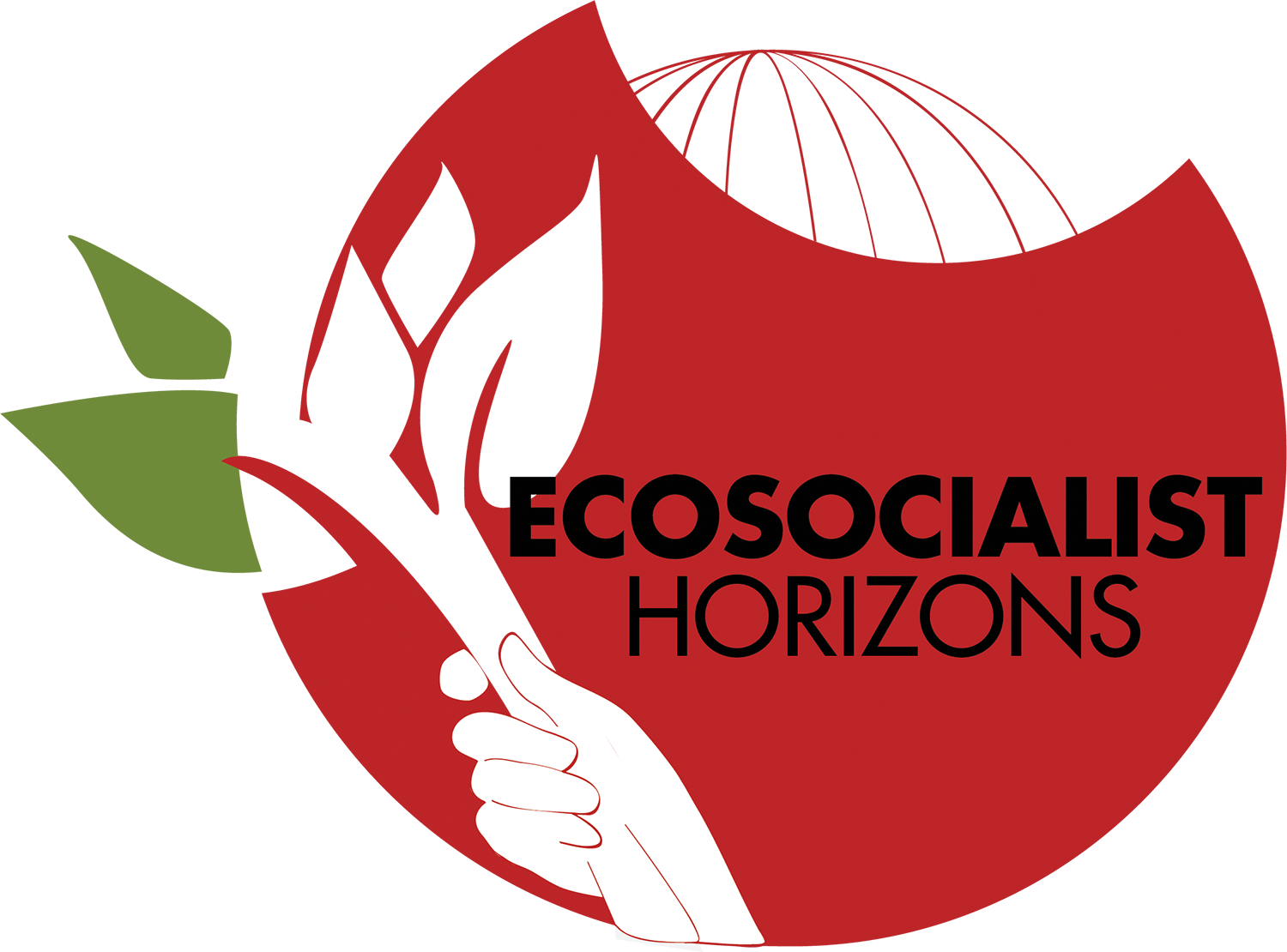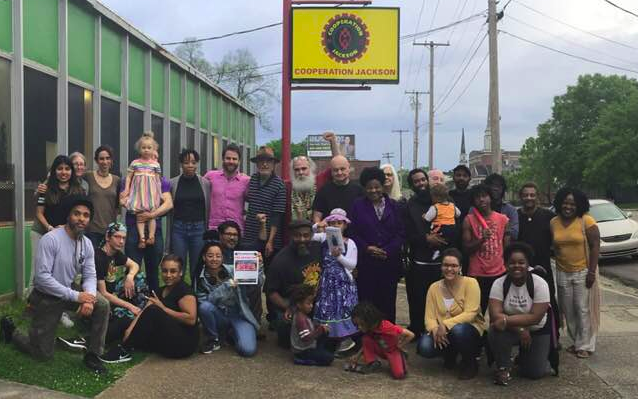Jackson Convergence Report: The First Ecosocialist International Takes Root and Makes Routes on Turtle Island
“The First EcoSocialist International: What it is and why you should join” —
video documentary introduction and initiation into the Jackson Convergence produced by Reel News. (Scroll down for more videos from the convergence!)
The First Ecosocialist International Takes Root and Makes Routes on Turtle Island
by Quincy Saul, June 2018
It began last year, when movements and organizations from around the world heard the Cry of Mother Earth. Answering this call, delegates from five continents gathered in a maroon municipality in Venezuela and founded the First Ecosocialist International.
Since then, participating delegates and organizations from the United States have organized follow-up events from coast to coast, featuring concerts and conversations from New York City to Los Angeles to New Orleans to Pittsburgh. Most recently, adherents of the new International gathered in Jackson, Mississippi, for a convergence hosted by Cooperation Jackson. The First Ecosocialist International is taking root and making routes.
In the latest edition of their newsletter, Cooperation Jackson explains:
“In the ongoing struggle to improve our practice, enhance our capacity, broaden our reach, and form strategic alliances to build power, the Executive Committee of Cooperation Jackson made the commitment to join the emerging FIRST ECO-SOCIALIST INTERNATIONAL in November 2017. We think this decision will be key to the long-term development of Cooperation Jackson and the fulfillment of its program and mission. In the effort to advance our long-term programmatic work…. we are hosting an ECO-SOCIALIST CONVERGENCE IN JACKSON from Friday April 20th through Sunday, April 22nd, in partnership with Ecosocialist Horizons and various adherents of the recently founded First Ecosocialist International… The convergence will be a strategy and plan of action development session. A primary practical aim will be to start identifying, recruiting, uniting, and mobilizing the strategic forces necessary to build a political force that can unite around building a coherent Eco-socialist program and practice to emancipate oppressed people and the working class, save our species, halt the sixth extinction event, and liberate our Mother Earth from the terrors of capitalism and imperialism.” (“Eco-Socialism: An Idea and Movement Whose Time Has Come,” The Cooperative Way: the Newsletter of Cooperation Jackson, Volume 4, Issue 3, April 2018)
Over the weekend, participants traversed principles and practices, peoples and programs, all of which were grounded in the rich soil of struggle upon which the city of Jackson Mississippi rests and rises. Colia Clark, civil rights movement veteran and Medgar Evers’ field secretary, led a tour of historic Jackson, connecting the dots between the birth of Black Power and the emergence of ecosocialism. This history was complemented by Kali Akuno and Gyasi Williams who guided participants on a tour of Cooperation Jacksons’ ongoing work, which ranges from fighting gentrification to building worker-owned cooperatives. From kazi to trueke, participants engaged in ancestral African and South American practices of collective labor and exchange, and hatched plans to spread the good news; developing strategies for communication and curriculum design around the practice and theory of ecosocialism.
Participants recognized that the new International and its Plan of Action are only just beginning, and began to outline additions and complements to its program, based on re-reading its Combined Strategy and uniting these with the Jackson Just Transition Plan and the Jackson-Kush Plan. This included but were not limited to (a) adding stops to the Route of Struggle, from Haiti to the Congo (b) adding the Rock to its table of elements, (c) refocused attention on the general prison population of the United States, (d) additional strategies for struggle and solidarity around water, and (e) redoubled focus on the demand for reparations for the crimes of slavery and colonialism. It also involved making plans to support the “First International Encounter of Sowers and Guardians of Water,” planned for November 2018 in the Plurinational State of Bolivia, the first stop on the Route of Struggle. Finally, a video was produced to build greater solidarity between Venezuela and grassroots movements in the United States, who share a common position: “we are a threat because we resist.”
Cooperation Jackson’s newsletter celebrated both the future and the past, grounding its discussion of ecosocialism in the legacy of struggle in the US South. 2018, the newsletter reminds us, is the 50th anniversary of development of the Provisional Government of the Republic of New Afrika out of the Black Government Conference organized by the Malcolm X Society in Detroit, and also the 50th anniversary of the assassination of Martin Luther King Jr, in Memphis Tennessee at a Sanitation Workers’ strike for dignity. “Both of these developments,” they write, “…were critical to the formulation of the Jackson-Kush Plan, which Cooperation Jackson is a vehicle of.”
This year is also the 150th anniversary of the birth of historian and activist W.E.B. Du Bois. In his seminal book “Black Reconstruction in America: 1860-1880”, Du Bois reflected on the influence of the First International in the United States: “The international movement, however, took no real root in America… The main activity of the International was in the North; they seemed to have no dream that the place for its most successful rooting was in the new political power of the Southern worker.”
Today this power is best expressed and represented by the diverse ecosystem of cooperatives and assemblies and farms and popular schools and electoral politics that Jackson is heir to. As expressed in their recently published book, Jackson Rising,
“The plan and work represent an ethical, de-colonial break with the constraints of ‘Northern’ radical theory and practice and its myopia related to colonialism and U.S. ‘domestic colonialism’ . . . . It is a star in a constellation of African Autonomous Zones throughout the Black World, with self-determining communities being built across Africa and the diaspora… We need thousands of Autonomous Zones and we need them to link on the basis of mutual aid and solidarity to break the back of imperialism and move us towards collective liberation and eco-regeneration.” (pp 284 and 288)
The First Ecosocialist International, embodied and prefigured in its 500-year Combined Strategy and Plan of Action, appears in this context as an electric current to unite the maroons of the whole world in an exodus from neocolonialism, and a return to Mother Earth.
Today, the seeds of First Ecosocialist International are taking root in the South, and sending out shoots on a Route of Struggle that is “gathering the forces of the five continents of the world to Reweave Pangaea.”



